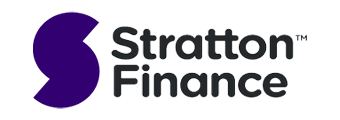Australians concerned about inflation will be cautiously optimistic about the ACCC's quarterly petrol price report, which revealed that the average retail petrol price went down from 188 cents per litre (cpl).
This is the first quarterly decrease since December 2020, and may indicate the start of the upcoming drop in inflation expected by the RBA.
In his statement on the monetary policy decision earlier this month, RBA Governor Dr Philip Lowe said that the banks central forecast remained that CPI inflation, having began to slow, would peak at the end of the year, before gradually declining in 2023 and 2024.
The ACCC said that a decrease in price of refined oil, driven by the price of crude oil, was the primary driver of the retail drop.
The report showed that Singapore Mogas 95, the price of refined petrol in Southeast Asia and the benchmark price for wholesale petrol prices in Australia, had been steadily rising since mid 2020.
However, the most recent quarter saw Mogas 95 drop 47.1cpl (about 34%).
The primary cause for this was a drop in the price for crude oil, which fell from around $127 USD per barrel in June to $88 USD in September.
The ACCC discussed two key factors that caused the lower international crude oil prices.
Firstly, rising interest rates across the world and concerns about a global recession have seen a drop in demand.
Secondly, several OPEC (Organisation of Petroleum Exporting Members) producers increased their output.
Oil production recovered in Libya in the second half of the year after political unrest limited output in early 2022.
For the September quarter, yearly inflation for the 'Transport' sector that includes fuel increased 9.2% for the year, according to ABS figures.
What bearing did the fuel excise reinstatement have?
The ACCC report also showed that in the months since the recorded drop, the return of the full petrol and diesel excise has seen prices creep back up.
The excise was cut in half on March 30th (from 44.2cpl to 22.1) to ease cost of living pressures, but was restored on 28 September, and to a new level of 46cpl.
The ACCC noted that fuel prices had risen, but by less than the expected 25.3 cpl.
For example, in Sydney, Melbourne, Brisbane and Adelaide daily average petrol prices increased by between 15.9 cpl and 21.9 cpl between 28 September and 9 November.
"We have looked at the impact of the excise being restored, and, allowing for movements in international prices and the price cycles in the major cities, we found only a small number of unexpected increases in average retail petrol prices,” said Mick Keogh, ACCC deputy chair.
Advertisement
In the market for a new car? The table below features car loans with some of the lowest interest rates on the market.
| Lender | Car Loan | Interest Rate | Comparison Rate* | Monthly Repayment | Interest Type | Vehicle Type | Maximum Vehicle Age | Ongoing Fee | Upfront Fee | Total Repayment | Early Repayment | Instant Approval | Online Application | Tags | Row Tags | Features | Link | Compare | Promoted Product | Disclosure |
|---|---|---|---|---|---|---|---|---|---|---|---|---|---|---|---|---|---|---|---|---|
5.99% p.a. | 7.12% p.a. | $580 | Variable | New | No Max | $8 | $400 | $34,791 |
| Promoted | Disclosure | |||||||||
6.52% p.a. | 6.95% p.a. | $587 | Fixed | New, Used | No Max | $0 | $350 | $35,236 |
| Promoted | Disclosure | |||||||||
6.57% p.a. | 7.19% p.a. | $588 | Fixed | New | No Max | $0 | $250 | $35,278 |
| Promoted | Disclosure |
Picture by Kadlicskó Balázs on Unsplash






 Harry O'Sullivan
Harry O'Sullivan
 Harrison Astbury
Harrison Astbury